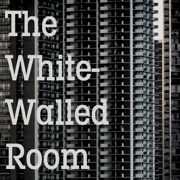
title: The White-Walled Room
instrumentation: voice, electronics
duration: 8 minutes
written in: 2009, revised 2012
text: Alex Temple
The White-Walled Room is about someone beginning to remember a traumatic event that happened five years earlier. The precise nature of the incident is never revealed, but it’s consistently associated with slow motion, the color white, and the idea of cleanness. I’ve noticed that these tropes appear frequently in artistic depictions of sexual trauma, from David Lynch and Mark Frost’s experimental soap opera “Twin Peaks” to Gregg Araki’s film Mysterious Skin and Stephen Chbosky’s coming-of-age novel The Perks of Being a Wallflower. My sense is that these works of art reflect psychological truths that are difficult to convey through literal description; instead they must be approached obliquely, through euphemism, misdirection and metaphor, and that’s what I have done here.
This piece would not exist if it weren’t for two people I met when I was living in New York. One was composer and musicologist Jenny Olivia Johnson, whose research on synaesthesia and artistic representations of trauma had a huge influence on the piece, both textually and musically. The other was soprano Julieanne Klein, for whom I originally wrote the piece. I’ve made many revisions since she premiered it at Cal Arts in 2009 — getting the piece to work has been a struggle, especially since it deals with such an emotionally heavy topic — and the most most recent is one that I perform myself. But it’s worth noting that the first glimmers of The White-Walled Room consisted of my suggesting to Julieanne that I write her a “Sprechstimme trip-hop” piece, and illustrating that suggestion by superimposing her performance of Schoenberg’s Pierrot Lunaire on top of Portishead’s “Glory Box.”
The White-Walled Room contains samples from Elisa Ferrari’s “The Bonaparte.”
Listen
Alex Temple, voice
studio recording, 2013–14